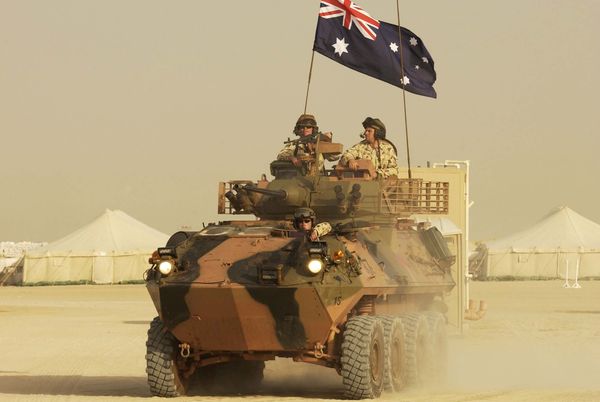The string of scandals and equipment-related disasters that has left Australia’s defence in a ”beyond tolerable” condition can be fixed only by fundamental changes to its structure, a defence analyst says.
The individual services – army, navy and air force – need to be given more responsibility, but should also be held accountable when things go wrong, Mark Thomson says in a report.
He says the influence of civilians in the Defence Department has been eroded, leaving the ”uniforms” wielding disproportionate power and resulting in the government receiving only narrow advice.
Advertisement: Story continues below ”If Australia’s defence matters at all, if armed force has any role in protecting our interests in the 21st century, the present situation is beyond intolerable,” Dr Thomson, from the Australian Strategic Policy Institute, says.
In the past few months, Defence – which has plans to acquire more than $150 billion worth of equipment in the next decade – has been hit by a succession of blows, including the Australian Defence Force Academy sex scandal, a report on bullying and sexual harassment on board HMAS Success, the revelation that $40 million has been spent on six landing craft that will not fit on our amphibious ships, and significant delays in the $8.5 billion air warfare destroyer warship project.
In February, it was also revealed that the navy’s amphibious fleet was incapable of sailing, resulting in Defence Minister Stephen Smith publicly criticizing Defence. It was the perfect example, Dr Thomson says, of the need for the three services to be given more independence, but also be more accountable for their mistakes.
”In a two-page explanation of the unexpected demise of the fleet provided by Defence … no person or identity within Defence was identified as being responsible,” Dr Thomson says.
”To be clear: a critical capability costing the taxpayer hundreds of millions of dollars a year fails without warning and we’re told it’s nobody’s fault. The worst part is that accountability is so amorphous within Defence that it’s a plausible claim.”
He says ministers are typically reluctant to hunt out who is responsible for mistakes because an antagonistic relationship with Defence is more likely to result in the replacement of the minister, rather than the secretary of the department or chief of the Defence Force.
The string of embarrassments over the past decade has also increased the workload of defence ministers, as they have demanded more frequent and detailed briefings, leading to a rise in the number of submissions to the minister’s office from 690 in the late 1990s to more than 2200 last year.
”To complicate matters further, the 24-hour news cycle has increased the ‘velocity of government’ so that ministers often find themselves managing the ephemeral issues of the day at the expense of more substantive matters,” Dr Thomson says.
”The combination of a mountainous in-tray and a distracted (often new to the job) minister is a recipe for slow decision-making, or worse.”










